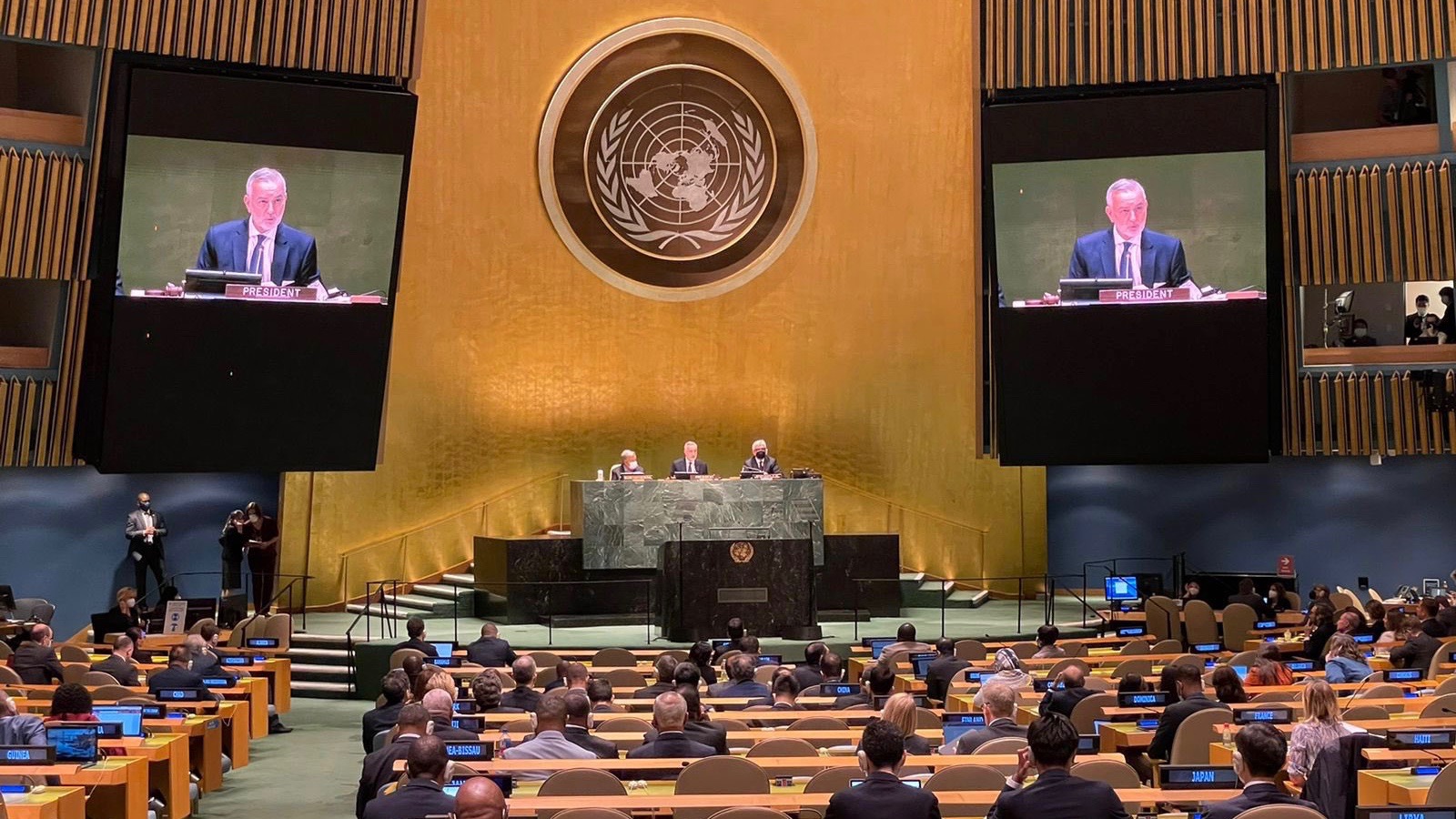During the tenth review conference of the Nuclear Non-proliferation Treaty (NPT) at the UN headquarters in New York, several Arab and Middle Eastern countries underlined the need of a nuclear free zone in the region, and claimed that Israel’s continued refusal to join disarmament regimes remains the biggest hurdle in achieving the same. Iran also reiterated its no nuke policy, while questioning the world’s continued silence over Israeli nuclear weapons.
Speaking on the issue on Thursday, Permanent Observer of the Arab League in the UN Maged Abdelfattah Abdelaziz claimed that lack of progress on creating a nuclear free zone in the region has a “deep negative effect.” He pointed out that Israel is the only country in the region which is not a signatory of the NPT, which puts the security of other countries in the region at risk.
Abdelaziz asserted that the success of the present review conference would be judged on the progress made on the issue of a nuclear free zone in the region and accession of Israel to the NPT as a non-nuclear state.
There are 191 signatories to the NPT which was first signed in 1968 and came into force in 1970. The objective of the treaty was to prevent the spread of nuclear weapons and promote disarmament, in addition to cooperation in the field of peaceful use of nuclear energy. The International Atomic Energy Association (IAEA), a UN body, monitors signatories’ peaceful use of nuclear technology governed under the NPT through safeguards agreements.
Nuclear weapons states including the US, China, France, Russia and the UK are signatories of the NPT. India, Pakistan and North Korea are the countries which have not signed the treaty.
Israel is widely believed to have nuclear weapons. It has neither confirmed nor denied such claims. It is the only country in the Middle East which has not signed the NPT or the IAEA safeguards agreement.
Several countries including Jordan and Saudi Arabia have also demanded a ban on nuclear technology transfer to non-state parties such as Israel until those states submit their nuclear facilities to the safeguards regime. Saudi Arabia’s Permanent Representative to the UN Abdulaziz Wasil said on Wednesday that “Israel’s continued refusal to accede to the [NPT]” is a grave obstacle for nuclear disarmament.
Delegates from Bahrain, Kuwait, the UAE, Algeria, Libya, Syria, Yemen, Egypt and Azerbaijan also supported the call for a nuclear free zone in the Middle East. Palestinian delegate Riyad Mansour asserted that there should not be “Israeli exceptionalism” when it comes to security in the region. “Our region should be free of nuclear weapons, full stop,” he emphasized. These countries were supported by Egyptian and Azerbaijanian delegates on Thursday.
Arab League’s representative Abdelaziz also claimed on Thursday that some countries are violating treaty provisions “by supporting Israel in the nuclear field.”
Iran reiterates its no-nuke policy
Iranian representative Majid Takht Ravanchi, while replying to allegations made by the US, the UK, and other European countries over Iran’s nuclear program, also raised the issue of Israel on Thursday. He claimed that “those countries, which are actively involved in modernizing their nuclear arsenals and extending unqualified support to the Israeli regime” have no right to question Iran’s peaceful nuclear program. Iran had claimed on Wednesday that “the Zionist regime’s nuclear weapons continue to pose a serious threat to the security of countries in the Middle East.”
The US, Israel and some European countries have accused Iran of secretly trying to develop nuclear weapons despite being a signatory to both the NPT and the IAEA safeguards agreement. The US has imposed a number of sanctions on Iran after withdrawing from the Joint Comprehensive Plan of Action (JCPOA) treaty in 2018. The JCPOA or the Iran nuclear deal was officially signed in 2015. The talks to revive the deal have been ongoing for over a year now and are set to resume in Vienna on Thursday after a months-long halt.
At the NPT review conference on Wednesday, Iranian delegate Ravanchi also supported the call for a nuclear free zone in the Middle East and the rest of the world, claiming that “nuclear weapons should not exist in the future we want to bequeath to our children.”
UN Secretary General Antonio Guterres, while inaugurating the review conference on Monday, August 1, said that the conference is taking place at a time “of nuclear danger not seen since the height of the cold war” and when “humanity is just one misunderstanding, one miscalculation away from nuclear annihilation.” He noted that the world now has over 13,000 nuclear weapons and states are seeking false security in stockpiling and spending hundreds of billions of dollars on doomsday. He underlined that the world has been lucky to avoid direct nuclear confrontation so far, and asked the countries to give up nuclear weapons and all weapons of mass destruction, claiming that “luck is not a strategy”.
The review conference coincides with the anniversary of the nuclear attacks on Hiroshima and Nagasaki on August 6 and August 9, 1945. It will continue till August 26 under the presidency of Gustavo Zlauvinen from Argentina.





